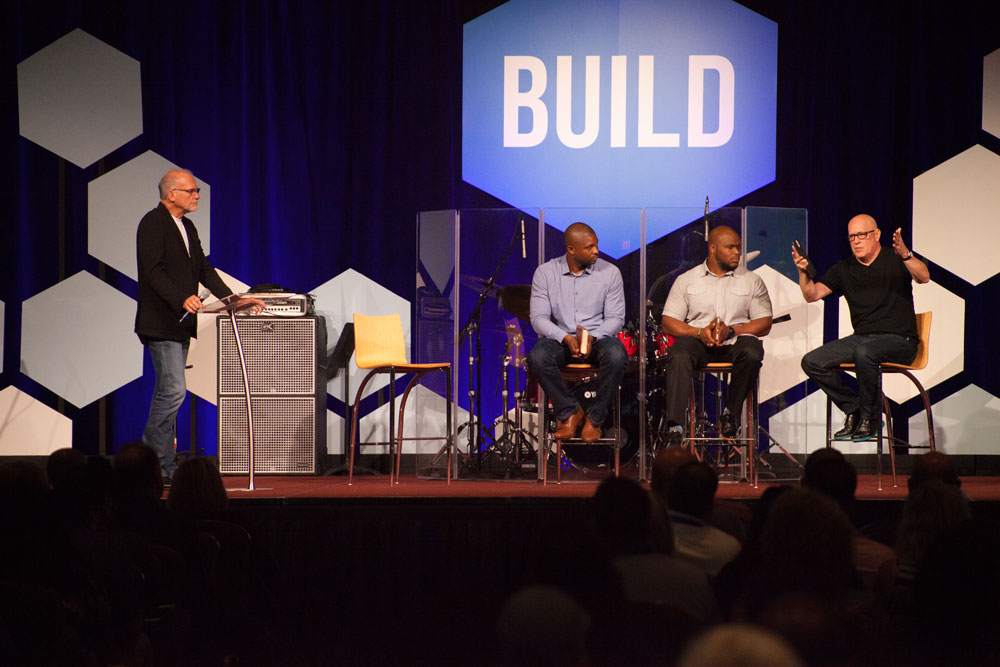
NASHVILLE, TENNESSEE—Last week, I returned from our annual Every Nation Build Conference in Orlando, where pastors, church planters, and campus missionaries from all over North America gathered for a time of fellowship, worship, and vision-building.
For those who couldn’t attend, you can still check out a quick recap video and listen to the messages here. I have many highlights from this year’s conference. One of them was leading the Biblical Preaching workshop with Pastor Brian Taylor of Bethel Cincinnati and Pastor Chris Johnson of Divine Unity Community Church. My good friend and executive director of Every Nation, Kevin York, moderated our session. Brian and Chris are excellent preachers, and I was honored to share the stage with them.
On the last evening of the conference, I preached the familiar story of Jesus feeding the 5,000 from John 6. This story is rich with potential for preaching.
You could preach about the contrast between ministering to crowds and making disciples. Jesus did both but prioritized the latter (John 6:2–3). You could preach about how Jesus “tested” Philip to see if he would view the food shortage through the eyes of faith (John 6:5–6). You could preach about signs and wonders and the sad reality that people often follow (even worship) signs rather than realize that the signs are meant to point us to Jesus (John 6:2,14). You could preach about provision, and how Jesus fed more than 5,000 people with just five loaves and two fish.
However, in my sermon, rather than focusing on the crowds or the disciples, I focused on that young nameless boy whose lunch Jesus used to do a miracle.
Though I have read (and preached) this text many times before, in preparation for my message, I was struck by a phrase that I had never noticed. After Andrew and Philip explain to Jesus how expensive it would be to buy bread for the large crowd, they add that there is a boy with five barley loaves and two fish.
Then John says, “Jesus then took the loaves. . .” (6:11)
I don’t know if Jesus asked or if the boy offered, but all we know from the text is that Jesus “took” the loaves. Again, the text doesn’t say, but I would be shocked if this boy was the only person out of 5,000 who had brought along some lunch.
So why did Jesus take the loaves from this boy? Is that really fair? How did the boy respond?
If I were him, I might have complained about being treated unfairly. I might have wanted some say over how Jesus and his disciples planned to use this bread and fish. I might have asked that they pay me back after their next fishing trip. I might have been offended and then just walked away.
What do you do when Jesus takes your last loaf?
What do you do when Jesus exerts his will upon your life?
What do you do when Jesus takes something from you without warning and without asking?
Though I had never realized it before, this story is about lordship. If anyone else had taken that boy’s bread and fish, it would have been unjust and self-serving. But because Jesus was the one doing the taking, the end result was blessing and multiplication.
Here’s the point: When Jesus takes your last loaf, it’s not because he needs it. It’s not because he wants to make your life miserable. It’s because he wants to do something in you and through you. He wants to take the natural and do something supernatural. He wants to take your ordinary life and do something extraordinary.
But that only happens when we acknowledge Jesus as Lord and allow him to take from us those things we’d rather hold on to.